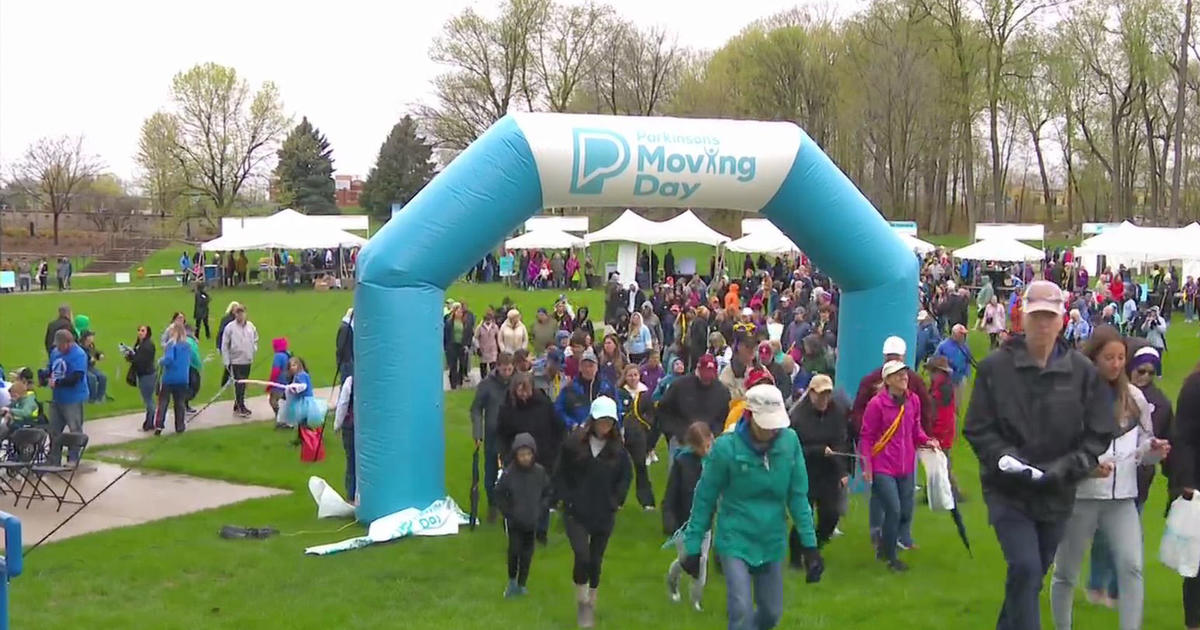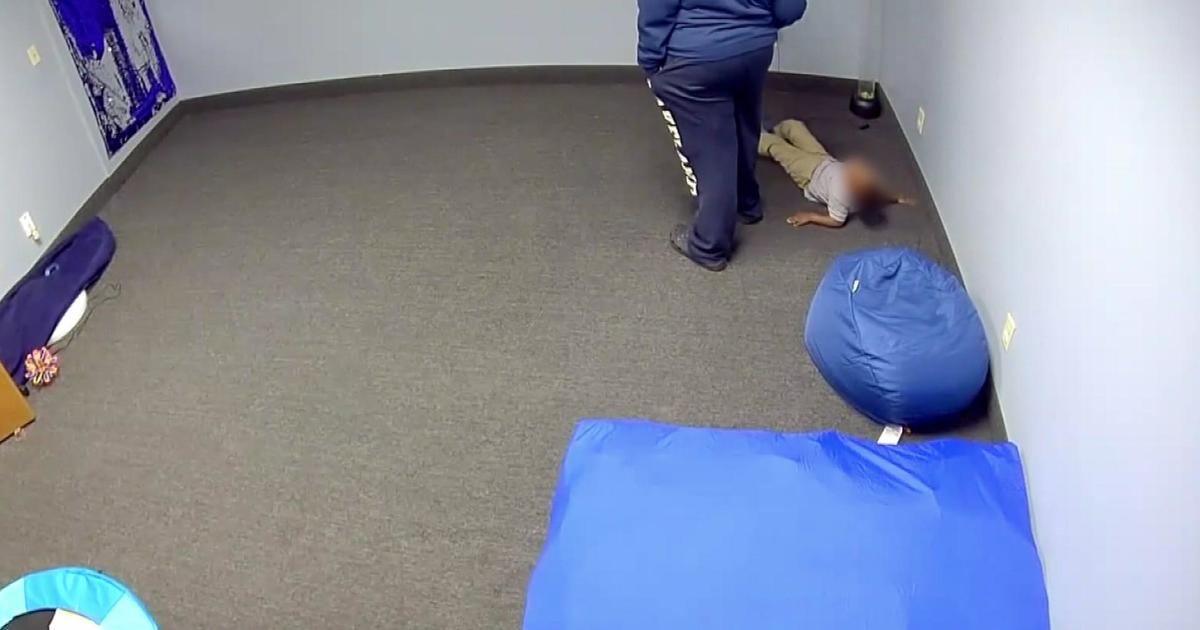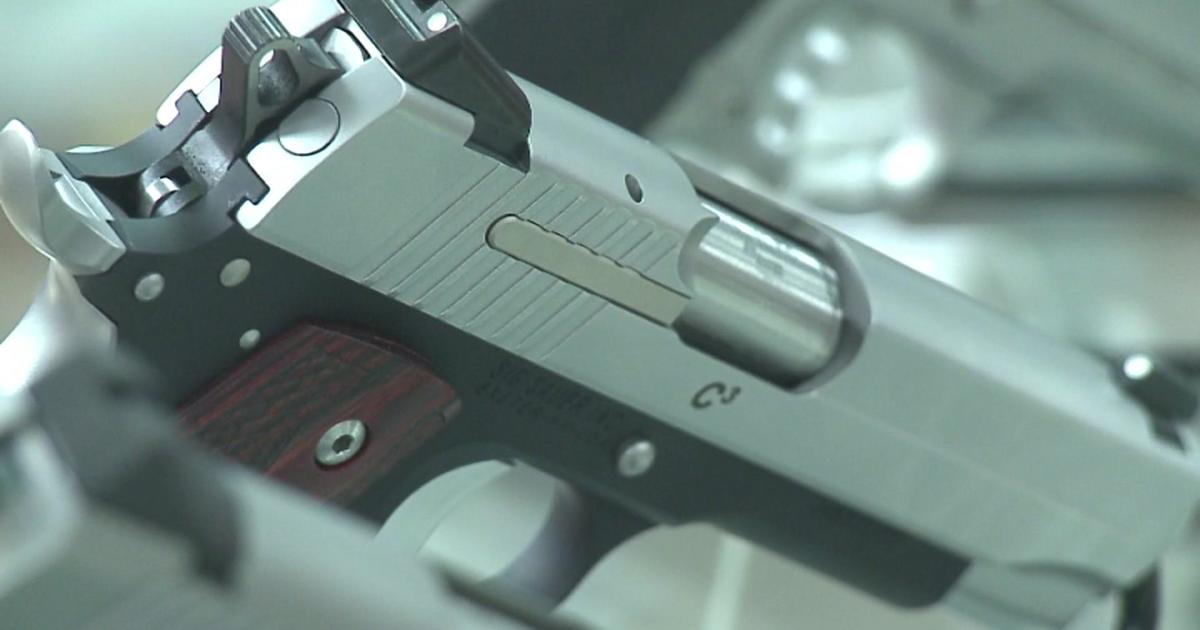Pro Theft Rings Transform Business Of Shoplifting
ST. PAUL, Minn. (AP) -- Stores have always had shoplifters. But not always like this.
Gangs of professional shoplifters, organized into theft rings, have become a growing menace for U.S. retailers. Roaming from store to store, they steal large quantities of easy-to-sell items -- such as baby formula, razor blades, video games or batteries. "They grab a cartload and push it out the door," said Lee Vague, Woodbury police chief. "That raises the red flag: Why this item? Why so many? Where's the market?"
The marketplace is often online, where stolen items are sold to consumers. Just as legitimate buying and selling online keeps growing, so do the organized rings that traffic in stolen goods.
Now, traditional retailers, including Minnesota-based giants Target and Supervalu, are seeking tougher laws that match the scale of the crime.
"There is a whole underground economy, and there are groups of people -- some loosely organized, some organized like a business enterprise -- that steal from stores," said Brad Brekke, Target Corp.'s vice president of asset protection. "They steal very specific items that tend to have a high resale value."
This is a different crime than shoplifting as most people understand it, Brekke says.
"You're talking about sweeping an entire shelf," he said. "It could be anything from iPods to ink cartridges to over-the-counter drugs like Tylenol, because these are things that are wanted by consumers. They can be sold to fencing operations and sold back to the public. It's almost like our business, in reverse." For Minneapolis-based Target Corp., ordinary shoplifting is still the most common crime. But its biggest losses come from organized theft rings, due to their scale and sophistication.
When police broke up a Chicago theft ring in November, they seized $4.5 million in cash and a warehouse full of goods. When Woodbury police cracked a separate case, "we sent moving vans back over to other cities to get things back," said Vague, Woodbury's police chief.
Cub Foods estimates its Twin Cities-area stores lose $2 million to $5 million a year to organized theft rings. Its parent company Supervalu puts annual losses at $25 million, at least. And rising.
"Our average shoplifting apprehension has increased 46 percent in the last three years -- which means they are stealing them in quantity, and we're stopping them in quantity," said Carol Martinson, Supervalu's vice president of asset protection.
Both the National Retail Federation and the FBI cite industry wide losses of $15 billion to $30 billion a year from organized retail crime. And it's not just the big retailers, either.
"Big, small, medium -- they're all affected by it," said Brian Steinhoff, president of the Minnesota Retailers Association. "If you talk to a women's clothing store, they do get hit by it."
HOW THEFT RINGS OPERATE
Many theft rings seem to combine sophistication with amateur hour. Pulling items off a store shelf, then racing to a waiting car hardly seems the work of a criminal mastermind. But Brekke and others see how deftly those criminal gangs can operate.
"Most of the good ones have a very set MO," Brekke said, referring to their method of operation. They use diversion, teamwork, advanced scouting, mapping tools and knowledge of the law.
Organizations operate in layers, which shields the ringleaders from prosecution. A typical theft ring will have "a minimum of six" layers between the low-level "boosters" and the ringleader, says Supervalu's Martinson.
That's a lot of layers for investigators to peel away, so cracking these cases is often time-consuming.
Target's Brekke gives an example of how a theft ring might work: A fencing operator sends word to low-level shoplifters, known as boosters, that he'd like iPods.
"Literally, there's an order put out," Brekke said, specifying how many iPods the fence wants and what he'll pay. The thieves "tend to map out the stores that carry them, so it's the Best Buys, the Targets, the Wal-Marts ... Many have already done some level of intelligence, they know our level of staffing, how we protect the product, which jurisdictions to avoid.
"They would try to hit anywhere from a half-dozen to a dozen stores (a day)," Brekke added. "They'll make the rounds in the morning and tend by midafternoon to go back (home) ... It's a business to them. They may do this two, three, four days a week."
The mobile gangs tend to hit retailers along major interstates like I-94 and I-35. Yet, smaller communities often are preyed upon. Smaller police departments and a lack of sophisticated security equipment can draw thieves, too.
Martinson recalls Supervalu's Hornbacher's stores in Fargo-Moorhead. "They were just getting killed," she said.
There's one other constant: Shoplifters keep the thefts below $5,000 per store, so if they're arrested, the chance of serious charges is low.
"They know exactly how much they can steal without triggering felony law," Martinson said.
U.S. Sen. Amy Klobuchar has proposed a federal law to make life tougher on theft rings. Minnesota's retailers strongly support it.
"As retail thieves have become more sophisticated, our laws need to be more sophisticated as well," Klobuchar said.
To start, the bill would aggregate theft totals -- so shoplifters couldn't duck serious charges by stealing less than $5,000 from each of 10 stores. Criminal charges would be based on the total amount.
The bill would also require more of online auction sites like eBay and Craigslist. They'd have to file suspicious activity reports on suspected criminal sellers and suspend them if confronted with clear evidence.
In a statement, eBay said it supports tougher penalties to fight retail theft, but that it and other Internet leaders opposed Klobuchar's bill, "due to concerns that it harmed Internet user privacy and would be ineffective at addressing the core problem of retail theft." It also says it's "bad policy" to require websites "to turn personal information over to business competitors without the involvement of law enforcement or any proof of wrongdoing."
Klobuchar's bill also tries to promote a better reporting system among police, retailers and federal officials. That would be welcomed by local police, including Woodbury's Chief Vague.
"These are tough cases for a municipal police department to work," Vague said, citing the far-flung nature of organized rings and the complications of teaming with distant police agencies. "Quite frankly, the framework just is not in place for us to deal with it very effectively."
At the state level, retailers support bills that would aggregate thefts at a $1,000 level. Some 24 states have passed retail-theft laws, but Minnesota is not yet among them.
Retailers are taking other steps, too. Although stores compete fiercely for sales, they cooperate to fight this problem.
"There isn't a day that goes by that the Cub Foods team doesn't work with Target or Wal-Mart or CVS," Martinson said.
Using security tapes and inventory records, retailers try to piece together how a theft ring is operating.
"We may actually allow the theft to occur once or twice or three times to understand who is operating and how they're operating," Brekke said. "We try to shift it from just arresting someone (at a low level) to finding out who is running the operation."
Investigators, police and retailers have had some successes. A sample:
In the Twin Cities, officials broke up a multi-million-dollar theft ring involving scores of shoplifters who stole DVDs, video games and electronics from Target, Wal-Mart and Best Buy stores. Ten Twin Cities-area residents have been convicted or pleaded guilty.
In southern California, Supervalu played a role in cracking a huge interstate theft ring. "That was a three-year investigation," Martinson said. "There was $4.9 million worth of inventory, and it took 55 semi-trailers to empty the warehouse."
In Seattle, police recently busted a theft ring that had stolen $1.5 million from Target and other retailers. Most of the boosters were drug addicts, police said.
In Florida, officials shut down a ring run by an extended family that stole an estimated $60 million worth of health and beauty products.
And in New Jersey, officials shut down a network that used hundreds of boosters, mostly drug addicts, to steal from Target and CVS stores.
"The magnitude is greater than most people realize," Target's Brekke said. "It has a negative pull on business, has a negative pull on tax revenue, has an increased cost to law enforcement."
By TOM WEBB
St. Paul Pioneer Press
(© Copyright 2011 The Associated Press. All Rights Reserved. This material may not be published, broadcast, rewritten or redistributed.)



